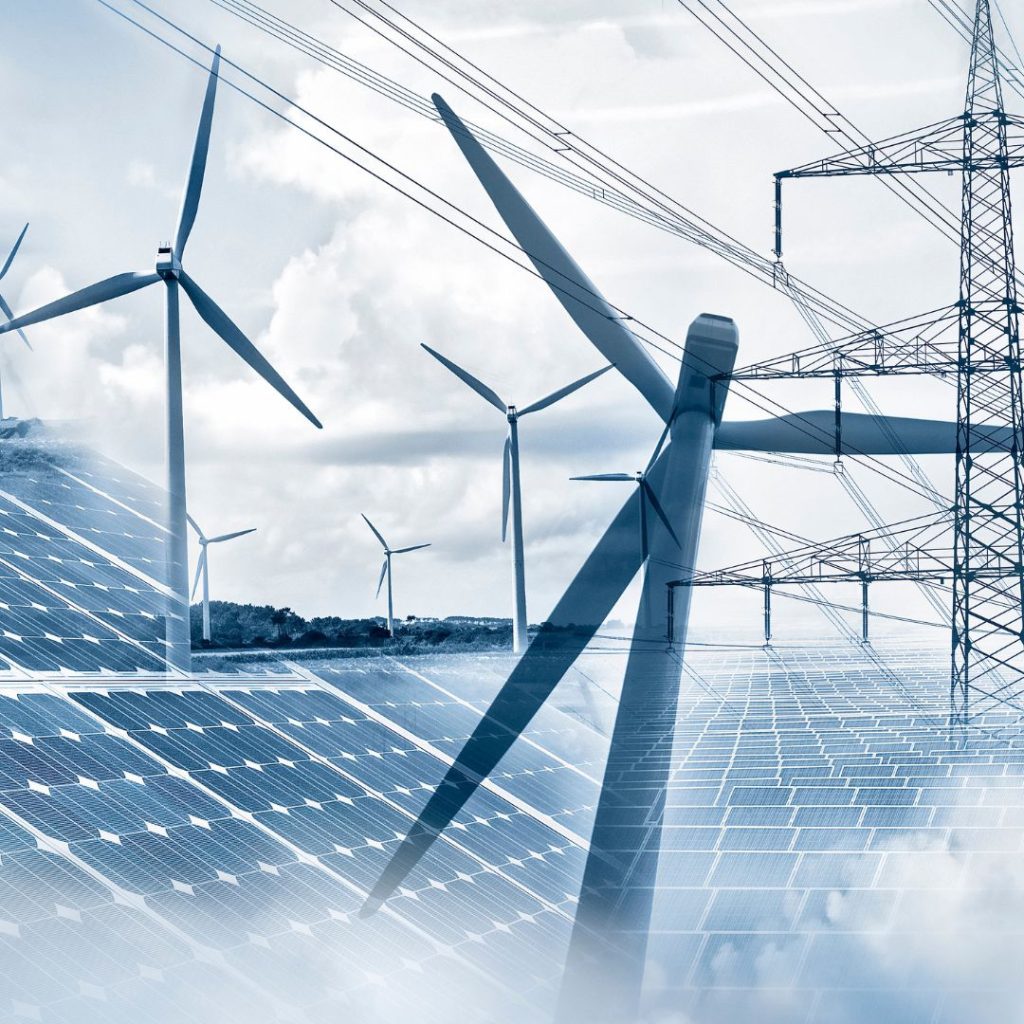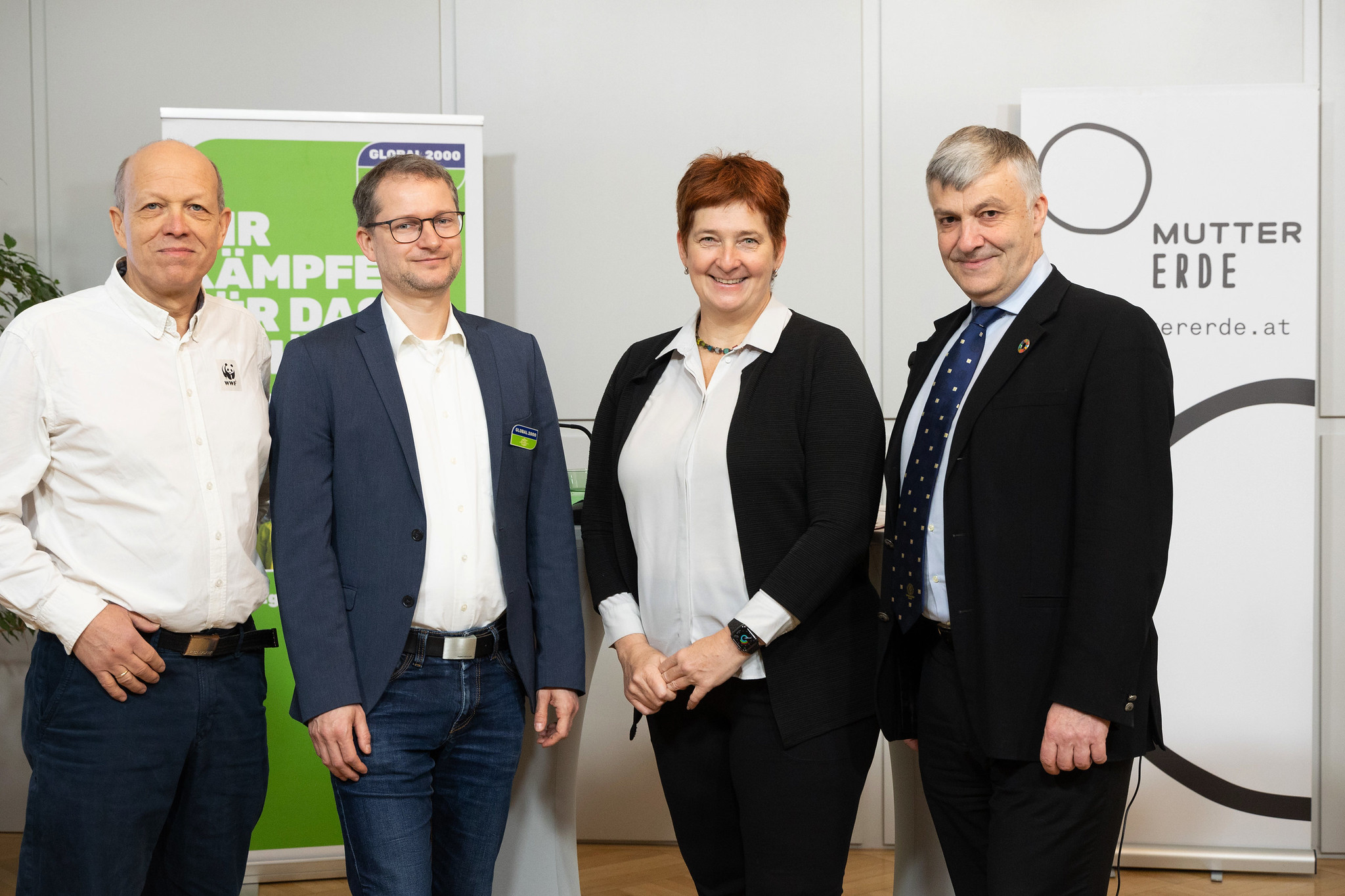New study: How climate protection strengthens the economy

Good news in the climate debate: if implemented correctly, climate neutrality also brings good economic development, rising wages and employment as well as a high quality of life. Achieving climate neutrality by 2040 will require a comprehensive restructuring of the domestic energy and mobility system. New analyses by the Wegener Center at the University of Graz and the Institute for Ecological Economics at the Vienna University of Economics and Business now show that several paths lead to climate neutrality and that these transformations can have a positive economic impact.

Photo press conference (c) Mother Earth/Ulrike Wieser
The three scenarios examined
Three different scenarios were used to investigate how the goal of climate neutrality can be achieved in 2040. A distinction was made between
- the technology-oriented ZeroBasis scenario, without a reduction in energy consumption and based on extensive electricity imports
- the ZeroTransition scenario with comprehensive climate protection measures, which relies on a significant reduction in energy consumption and increased measures in the area of the circular economy
- the JustTransition scenario, which aims to strengthen inter- and intragenerational justice and therefore includes additional measures such as a CO2 tax focused on luxury goods, an adjustment of working hours and other environmental dimensions.
Positive impact on income, employment and distribution through climate protection
The analysis of the scenarios shows that the Zero Transition scenario performs better in many respects than relying solely on technological changes (Zero Basis scenario).
-
-
- Increase in prosperity: The increase in prosperity is higher because higher-quality products are produced through increased measures in the area of the circular economy.
- Increase in employment: At the same time, the unemployment rate falls to 1.69 %, meaning that de facto full employment is achieved.
- Income growth: The higher demand for labor increases wages and salaries, which primarily benefits the lower three income deciles.
- Security of supply: Security of supply is improved by lower energy consumption and the outflow of 8 to 12 billion euros for fossil energy imports is also reduced.
- Biodiversity: The overall reduction in energy and material consumption also reduces the burden on nature and the environment and thus strengthens efforts to improve biodiversity.
-
JustTransition scenario includes social justice
In the JustTransition scenario, additional measures such as a differentiated carbon tax, in which luxury goods are taxed at a higher rate, can relieve the burden on lower-income groups. The socio-ecological analysis also shows that a purely technology-centered transformation path neglects other social and, above all, ecological dimensions.
Economic driver circular economy
"The comprehensive establishment of the circular economy not only reduces our energy dependency on foreign countries, but also significantly increases employment. Reduced unemployment and the shift towards higher wages will strengthen social justice," explains Karl Steininger. Even in the much more important energy source of electricity, Austria could even (just) become a net exporter.
Structural changes necessary
"In macroeconomic terms, there are therefore several net-zero paths to securing prosperity and employment. Structural changes in the tax system and in social coexistence are necessary to tackle the social and ecological problems of the transformation. This can reduce inequalities, further reduce material consumption and preserve biodiversity," Sigrid Stagl sums up. "In terms of intergenerational risks, the scenarios differ significantly. The ZeroBasis scenario is assessed negatively in this respect, the ZeroTransition scenario neutrally and the JustTransition scenario positively."
Increased political and social efforts required
In order to realize these benefits, increased political and societal efforts are needed. The environmental protection organization GLOBAL 2000 is now calling on the federal and state governments to pick up the ball: "Climate protection and the switch to renewable energies are a huge gain for our entire society. The economy can flourish, wages and salaries increase and we become independent of expensive and dangerous fossil fuels. However, important measures need to be put in place now.
We need a climate protection law that clearly sets out the path and with which the targets can also be achieved, the reduction of environmentally harmful subsidies and the implementation of long-announced laws, such as the Renewable Gases Act, so that dependence on Russian gas supplies can at least be noticeably reduced," says Johannes Wahlmüller, climate and energy spokesman for GLOBAL 2000, listing the next key steps.
Stefan Moidl, Managing Director of IG Windkraft, comments on the study: "One thing becomes clear very quickly: without the rapid expansion of renewable energies, climate protection and the transition to a resilient economy will not succeed," Moidl notes: "However, the energy import payments of EUR 27 billion in 2022 alone show how high the savings can be in a climate-neutral Austria if Austria can then do without them."
These analyses make it clear that we need climate protection that takes people and nature with us. Technical solutions are important instruments, but cannot solve the problem on their own.
Karl Schellmann, climate spokesman for WWF Austria, concludes:
"We can see here that effective climate protection brings more protection for nature, more added value for the economy and a better quality of life for all parts of society. Without further development for society as a whole, one-sided technical solutions, or even speculating on technical solutions yet to be invented, will lead to wasted energy, billions in foreign dependency, more destruction of nature and a widening gap between people with low incomes and those with high salaries and many possessions."
Links
The economic analysis can be found here!
The socio-ecological analysis can be found here!
The summary of both studies can be found here!






